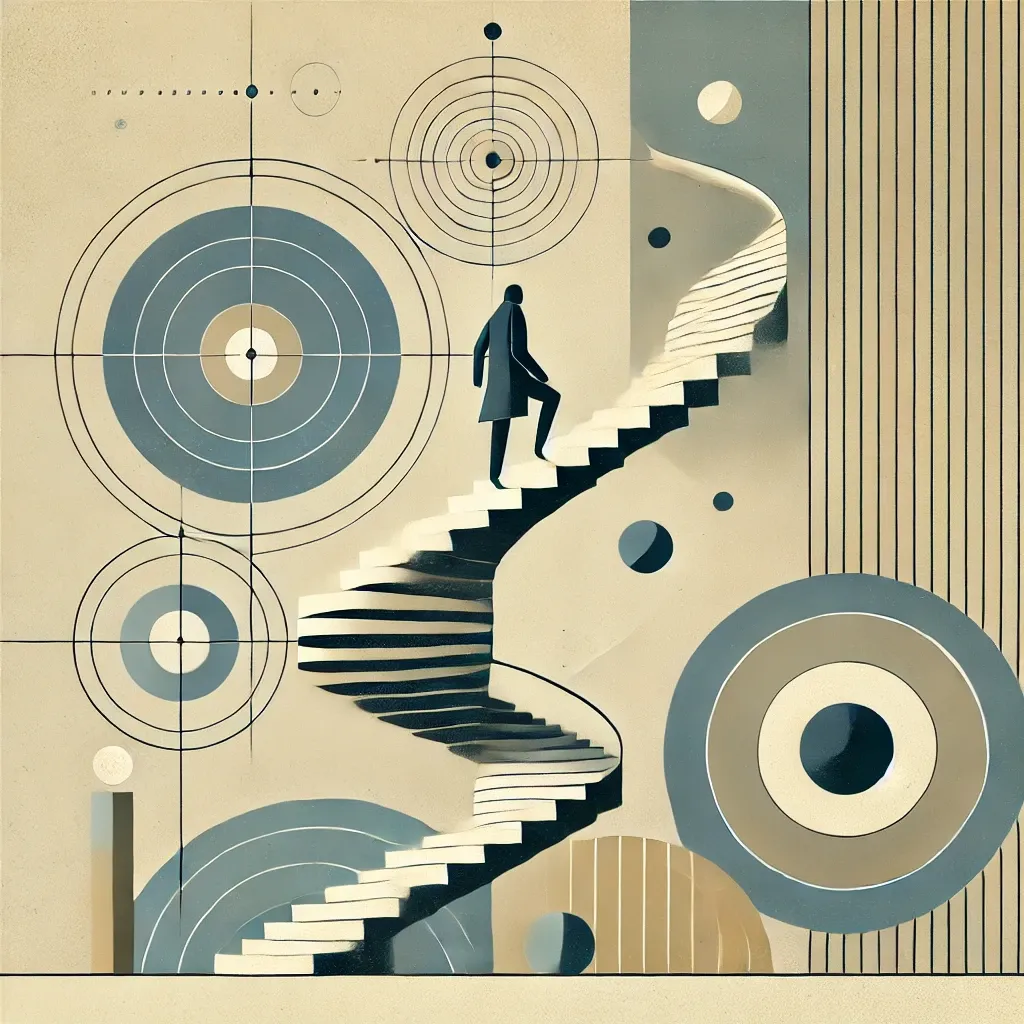Back in the day, choosing a career was pretty simple.
You didn’t.
You did what your family did, or did the one job available in town. People rarely switched careers because, well, there weren't really any careers to switch to.
And "career satisfaction" wasn’t even a thing. You worked to feed your family, end of story. (Our ancestors stuck with their jobs so long, they literally became their surnames: The Smiths, Fishers, Masons.)
It sounds horrible, but the irony is…
They were probably more ‘satisfied’ with their jobs than we are!
Fast forward to the present, and look at the sheer number of jobs available now:
You can be a teacher, a content creator, an influencer, a business owner, a self-taught programmer specializing in one of 20 programming languages…
Plus, the dizzying number of education options - from coding bootcamps, to career change schools, to part time MBAs and ‘externships’…
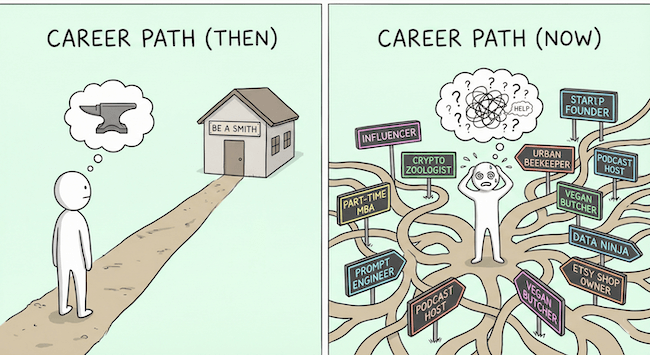
The result of all this choice?
We constantly second-guess ourselves, we can’t relax & commit to one career, and we’re left with a gnawing sense of FOMO: Did I make the right choice?
I see this all the time in emails from readers. Here's one example (paraphrased):
"I’m stuck. I could stay at my current company and get promoted in two years, but I'm feeling bored. Maybe I should join a startup for excitement? Or switch careers entirely and learn programming? Or just move to another stable corporate role for a change?"
Ultimately:
More choices lead to more uncertainty.
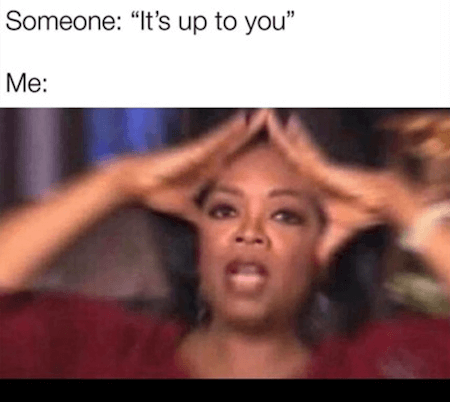
It's a real problem. Today, let's explore a few ideas that might help.
🥅 Define the goal posts
More choices lead to uncertainty because you’re trying to pick the “best” option… without a definition of “best.” Or worse: you’re using someone else’s definition of best (status, prestige, what sounds impressive, what your parents would pick, etc).
So before you decide any big career decision, set 3 goalposts — based on you:
- What are you actually good at? (the thing people rely on you for)
- What do you want more of in 2026? (pick one, not ten)
- What are you not willing to sacrifice? (one line)
If you want to get this right, do the Coached Impact Assessment. It takes only ~20 minutes, and you’ll get a breakdown of what you’re good at, what tends to get you stuck, and the kinds of roles/environments you thrive in — so you can move in a direction that actually fits you.
|
We built it with psychologists and career coaches, and the most common reply we get is some version of: “this explained everything.” Worth doing if you’re stuck wondering if you’ve been making the right career moves.
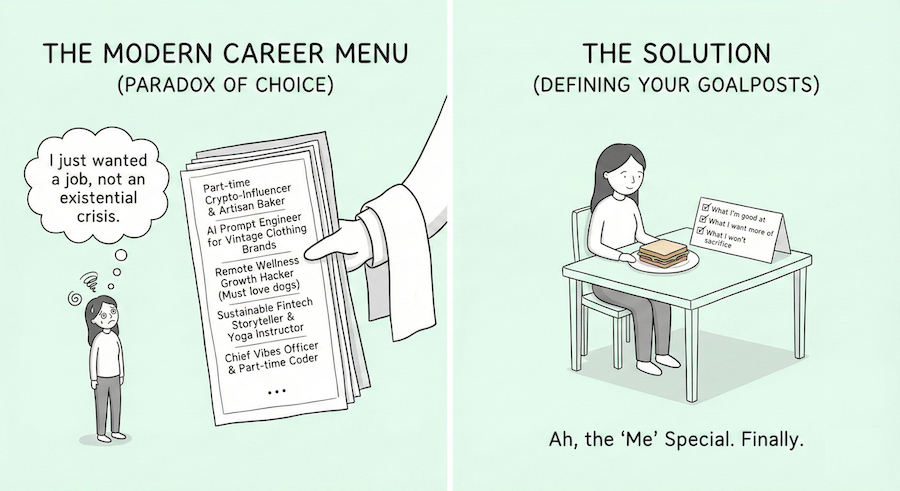
📈 Progress >> inaction
When faced with a decision, we tend to freeze up, and agonize over picking the right fork in the road.
A better solution?
Start taking action down one path. Usually you can change your mind later anyway - choices aren’t always as permanent as we think they are.
After all, what’s better: trying to figure out the best option for 6 months from the sidelines, or taking 3 months to try out each one? (The latter!)
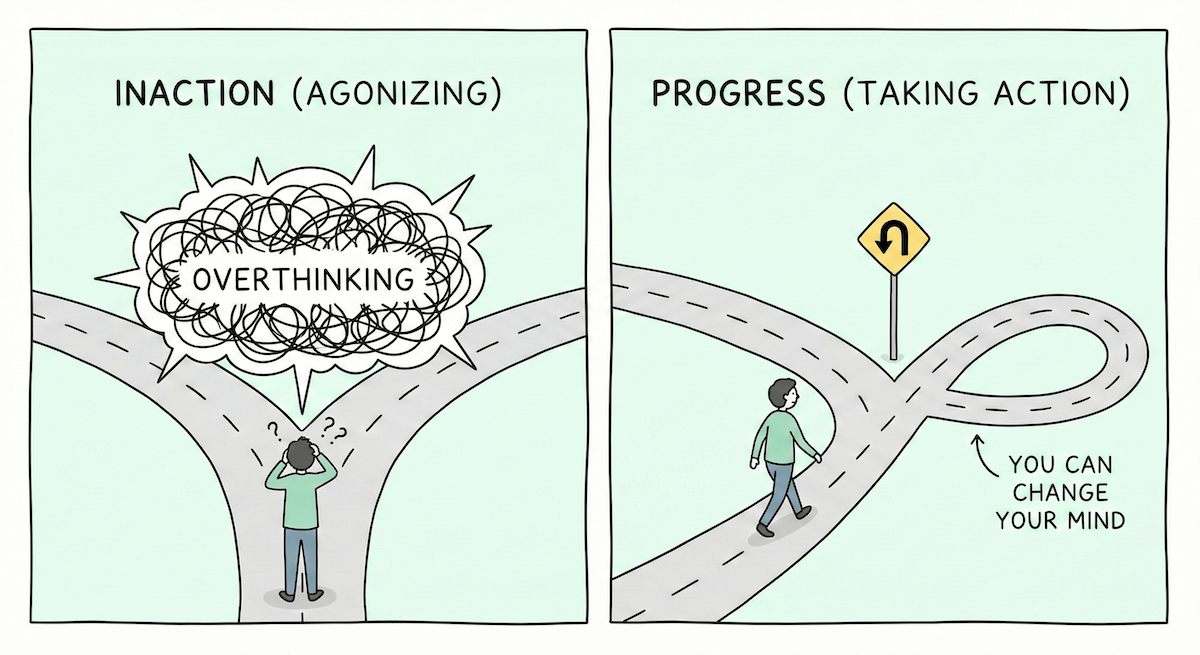
Here’s a practical takeaway:
Instead of debating in your head for weeks, spend the next two weeks taking one small step down a path you’re curious about. For instance, if you’re unsure whether to focus on project management or data analytics next year, carve out two afternoons to try a short online tutorial in analytics. See how it feels.
Understanding whether you feel in control of your outcomes or at the mercy of external forces makes a huge difference. The Locus of Control Test reveals how you view your ability to influence your career path. For a comprehensive look at your decision-making patterns and career strengths, the Coached Impact Assessment offers personalized insights in just 15 minutes.
Movement beats endless overthinking.
🖐️ The "5/5/5" rule
Smoked salmon vs. cream cheese? Java or Python? Should I marry Jane or Rachel? When faced with decisions big and small, I like the 5/5/5 rule:
Will this matter in 5 days? 5 months? Or 5 years?
This might help you understand the real weight of the decision and make it easier to choose. Often, many decisions we’re ‘stuck’ on won’t even matter in a few months, much less a few days. Recognizing that takes the pressure off.
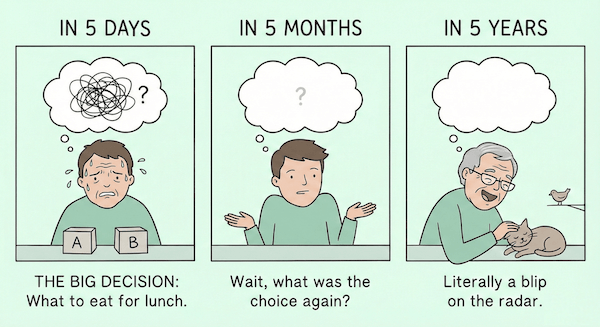
🥲 Counteract FOMO with JOMO
Instead of the Fear Of Missing Out, embrace the Joy Of Missing Out:
The liberating feeling that by choosing one path, you're freeing yourself from the negatives of the other paths.
Put a tad more… visually: the grass isn’t always greener on the other side – sometimes it’s dry, unkempt, and covered in dog poop.
An example:
If you choose a stable path inside your company (maybe focusing on building a reputation in your current department), you’re avoiding the uncertainty and stress that might come from hopping to a totally different role somewhere else.
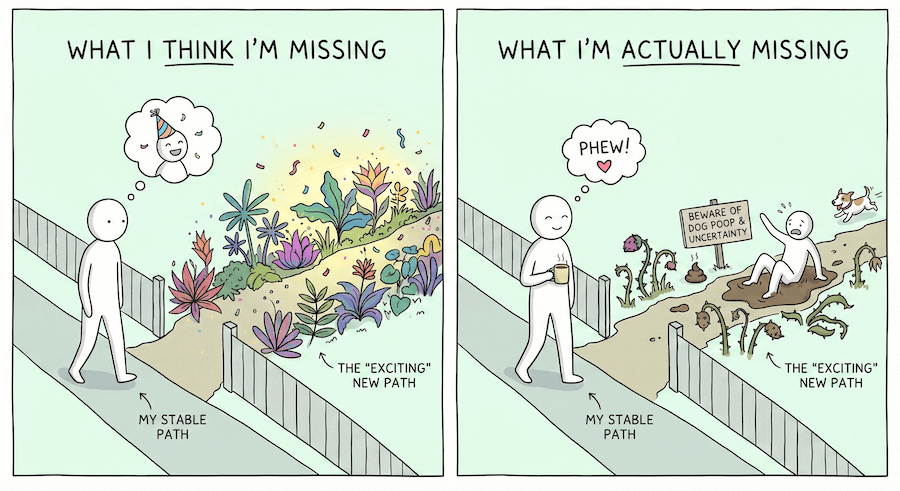
When decision-making feels overwhelming, it's often because stress is clouding your judgment. The Perceived Stress Test can help you understand whether stress levels are affecting your ability to think clearly and make confident choices.
🎲 Lower the stakes
We often get stuck by viewing career decisions as enormous, irreversible leaps.
A smarter approach is to run smaller, low-stakes experiments first. This way, you can gather information to make a more informed choice without needing to fully commit.
Say you’re thinking about switching careers into software design. But you’re not sure you’re going to love it.
Instead of being watching a bunch of interviews about it, a low-stakes experiment you could run is to do a freelance design project. Sign up as a freelancer on platforms like Fiverr or Upwork, and do a small 10-hour project at a low entry-level rate. You'll deal with real clients, real deadlines, real problems and get a much clearer picture than you would otherwise.
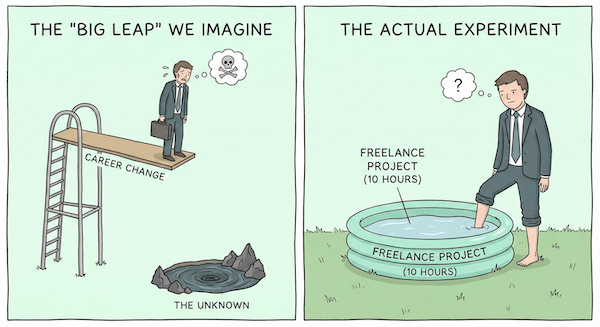
🧊 You don’t make the right decision…
Here’s a quote I love: “You don’t make the right decision, you make the decision right.”
It sounds weird, but it’s freeing. If there’s no “perfect decision”, then you’re free to pick either and make the best you can of it.
If you enjoyed this, forward it to a pal or colleague who’s thinking about their career or their next move — they might enjoy it too. Or, please reply if you have feedback. I’m not a robot, and I read each one. It’s motivating.
And if you missed it above — If you’re stuck on something in your career right now, do our Coached test — it’ll give you a clear readout of your strengths, blind spots, and the kinds of roles/environments you’re likely to thrive in → Get your Impact Assessment.



